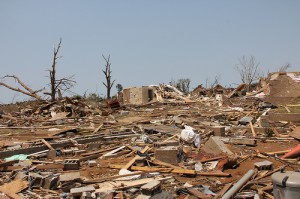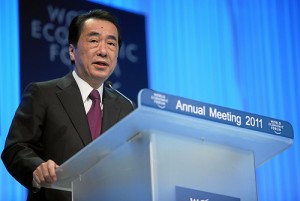Posted on 04 May 2011. Tags: calamity, earthquakes, gratitude, international cooperation agency, japan international cooperation agency, japanese embassy, latin america, march 11, plastic sheets, relief effort
 Japan announced on Tuesday that they would send blankets for the victims of the successive tornadoes that swept the southern part of the United States. They said that this is their way of repaying the gratitude for the help U.S. gave them when they too suffered from tsunami and earthquake just months ago.
Japan announced on Tuesday that they would send blankets for the victims of the successive tornadoes that swept the southern part of the United States. They said that this is their way of repaying the gratitude for the help U.S. gave them when they too suffered from tsunami and earthquake just months ago.
An official from the Japanese embassy said that Japan will give 125,000 US dollars worth of plastic sheets and blankets for the people who were left distraught by the tornadoes. The same calamity killed an average of 350 people. Jim Steinberg, US Deputy Secretary, expresses his appreciation on behalf of the U.S. government.
It has been reported that the US military conducted a 24-hour relief effort after earthquakes and a tsunami struck Japan on March 11. The US forces helped search for bodies, airlifted supplies to places inaccessible by land, and more importantly assisted in the repair of Sendai airport.
Foreign Minister of Japan Takeaki Matsumoto said that the damages the tornado left made him recall the earthquake that struck his country. When he visited Washington on Friday, he told State Secretary Hilary Clinton that Japan is prepared to offer aid to the best of their abilities.
Japan mentioned that the blankets and plastic sheets for the victims of the tornadoes will be shipped from a warehouse in Miami. That is where the Japan International Cooperation Agency keeps their supplies for the aid they usually send to Latin America during disasters.
Posted in Nation and World
Posted on 15 April 2011. Tags: blackouts, chernobyl, disastrous earthquake, divine punishment, fukushima, gubernatorial elections, ishihara, march 11, naoto kan, ruling party
 The ruling party of Prime Minister Naoto Kan suffered losses from the local elections held over their weekend after the nuclear power plant crisis further weakened his governance.
The ruling party of Prime Minister Naoto Kan suffered losses from the local elections held over their weekend after the nuclear power plant crisis further weakened his governance.
Shintaro Ishihara still won his fourth term regardless of what he said; that the disastrous earthquake and tsunami was a divine punishment for the country.
Ishihara is popular for his criticisms about China, including the elite bureaucrats at home. He urged residents in Tokyo to conserve energy after the problems of the quake-hit nuclear power plant caused power shortages and blackouts in the capital city.
Moreover, Kan was already pressured to step down even before the earthquake and tsunami occurred on March 11. The incident left his government coping up with the worst crisis that hit Japan since World War II.
Yet, Prime Minister Kan is unlikely to be forced out of Japan while the country is still regaining control over the crippled Fukushima power plant located north of Tokyo. Today, it is the biggest nuclear crisis in the world since the tragic Chernobyl occurred.
Kan’s ruling Democratic Party lost 69 seats during the votes cast on Sunday for the prefectural assemblies. The party also lost three gubernatorial elections.
Still, Democratic Party takes over the parliament’s lower house. However, it needs the opposition, as well as the funding legislation in the upper house to assist them in passing the bills.
Analysts has previously expected the Democratic Party to have a heavy loss in the elections, which was likely to be blamed on Kan.
Posted in Nation and World
 Japan announced on Tuesday that they would send blankets for the victims of the successive tornadoes that swept the southern part of the United States. They said that this is their way of repaying the gratitude for the help U.S. gave them when they too suffered from tsunami and earthquake just months ago.
Japan announced on Tuesday that they would send blankets for the victims of the successive tornadoes that swept the southern part of the United States. They said that this is their way of repaying the gratitude for the help U.S. gave them when they too suffered from tsunami and earthquake just months ago.
 The ruling party of Prime Minister Naoto Kan suffered losses from the local elections held over their weekend after the nuclear power plant crisis further weakened his governance.
The ruling party of Prime Minister Naoto Kan suffered losses from the local elections held over their weekend after the nuclear power plant crisis further weakened his governance.